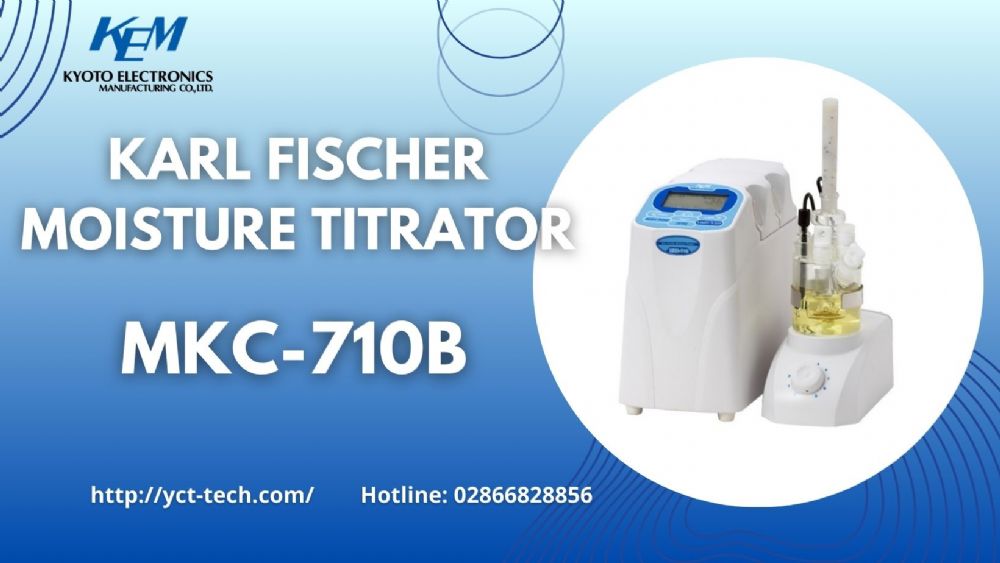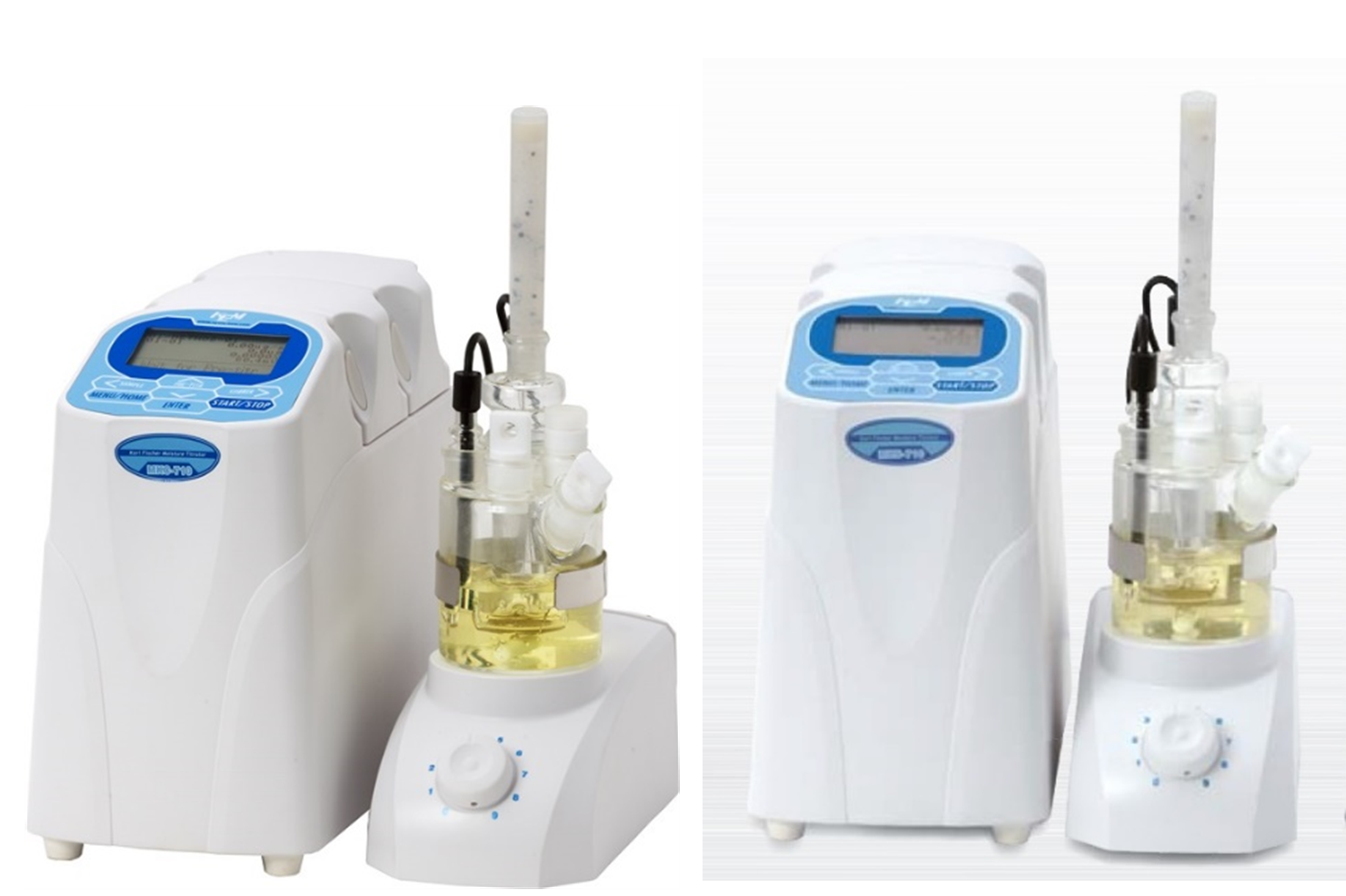
 News
News

Karl Fischer Moisture Titrator (Coulometric titration)
Model:MKC-710B
Brand:KEM KYOTO - JAPAN
The Karl Fischer Moisture Titrator, using the Coulometric method, is an organic liquid moisture testing technique (Karl Fischer coulometric method) for measuring water content.
***Method Overview: This standard employs Karl Fischer's reaction as the basis for measuring water content. The principle involves using sulfur dioxide to reduce iodine in the sample containing water, resulting in the formation of sulfur trioxide and hydriodic acid. This reaction only quantifies when pyridine or other organic bases and methanol or other alcohol solvents are present. Unlike the volumetric Karl Fischer reagent containing iodine, the Coulometric method generates iodine during electrolysis based on Faraday's law, with 10.71 coulombs required to electrolyze 1 milligram of water. Therefore, by measuring the total consumed electrical charge during electrolysis, the water content in the sample can be determined.
***Instrument Features:
- The operation is straightforward, requiring only pressing the PRE-TITR. and START buttons to perform measurements.
- Measurement results can be stored on a USB drive, and PDF experiment reports can be generated.
- The addition of MCU-710M connection allows simultaneous titrator and moisture content measurements.
**Instrument Model
- Model: MKC-710B Coulometric Karl Fischer Moisture Titrator
- Measurement Method: Coulometric Karl Fischer method
- Measurement Range: Moisture content: 10µg - 300mg H2O, bromine value bromine index
- Test Cell: Twin type/single type
- Endpoint Detection Method: Constant current pulse time control
- Resolution: 0.1µg
- Display: LCD display with six languages
- Methods: 20 methods can be stored
- Data Storage: Up to 100 measurement sets can be stored
***Application Range:
- Chemical Industry: Petrochemicals, chemicals, pharmaceuticals, cosmetics, cleaning products, plastics, resins, paints.
- Food Industry: Food, beverages, flavors, dairy products, oils, seasonings, tobacco, sauces.
- Electronics Industry: Electronics, electroplating, etching, semiconductors, optoelectronics, batteries, capacitors, appliances.
- Machinery, Textiles, Metals, Cement, Biochemistry, Optics, Environmental Protection, Mining, Academia.

